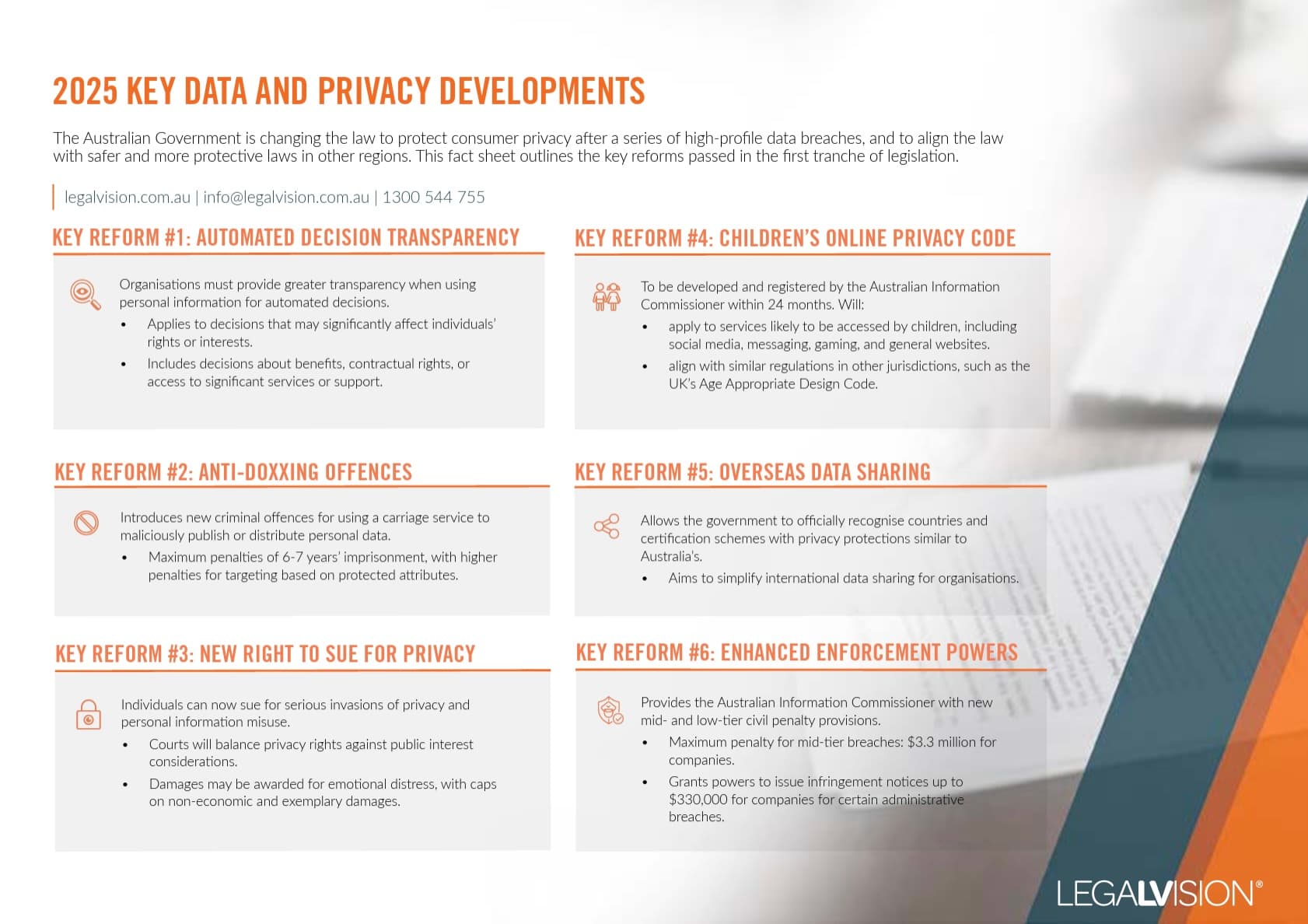If you own a business, it is essential that your employees keep certain information confidential from the public. To protect your business, it is useful to outline these duties within your employment contracts. It is essential to understand your rights when an employee misuses confidential information during and after their employment. This article will explain the duty of confidence and how to protect your business’ confidential information.
What Information is Considered Confidential?
Not all information within a business is confidential. As a business owner, determining what information requires a high level of protection is crucial.
Usually, the type of information that is considered confidential is that which:
- is not available in the public domain; and
- is necessary for your business to be successful; or
- your business has generated.
How Do I Prove an Employee Breached Their Duty of Confidence?
An employee has likely breached their Duty of Confidence if:
- they sell important commercial information; or
- provide confidential information to their new job.
Unfortunately, many employers only realise this has happened after the damage occurs. Therefore, it is crucial that you clearly outline your employee’s obligations right from the start, in their employment agreement.
This agreement should define confidential information and require the employee to keep secret all confidential information both during and after their employment with your business. This will make your expectations very clear to employees.
Further, when an employee resigns, you should remind them of their post-employment obligations regarding keeping confidential information undisclosed.
In the case of a potential breach, you may decide to take legal action against your employee. You will need to prove that:
- the employee had an obligation to keep the information confidential;
- the type of information is considered confidential; and
- you did not authorise the employee to disclose the information.
How Does the Court Determine What is Confidential?
If you wish to take action against your employee in court for breaching their duty of confidence, you will need to identify the misused information. While this might seem counter-intuitive, you must disclose the confidential information so that the court can properly consider your case.
The court may decide that only a portion of the information needs to be confidential. For example, it could hold that some aspects of the confidential information are ‘know-how’ that an employee would have learnt during their employment. Alternatively, the court may say that the confidential information is common knowledge in the industry or broader public. In this case, it is hard to show that the relevant information is from a confidential source.
Some key factors that the court may use to reach a decision are:
- whether other businesses had the same information;
- whether other employees were aware of the information;
- the commercial value of keeping the information confidential;
- the definition of confidential information in the employee’s contract;
- the ease or difficulty of someone being able to access confidential information; and
- any public benefits of sharing the information.

This factsheet outlines the Australian Government’s strengthened consumer privacy laws in 2025 following major data breaches and their alignment with global standards.
How Do I Protect My Business?
A common and effective way to protect your business is to have clear clauses within your employment contracts that outline what information is considered confidential. You can also prohibit an employee from sharing confidential information once an employment contract ends.
Other practical steps include:
- marking confidential documents as confidential;
- limiting access to confidential information to only the necessary employees;
- requiring employees to undertake confidentiality training;
- reminding terminated employees of their post-employment obligations regarding confidential information; or
- drafting and signing a non-disclosure agreement.
You should also ensure that contractors of your business are aware of their duties of confidence. You can require contractors not to disclose confidential information under their contracting agreements.
Key Takeaways
If you are an employer, you must understand whether your employees and contractors owe a duty to keep certain information private, known as a duty of confidence. You should first identify what information needs to remain confidential and then take steps to ensure that it is protected. A great way to do this is to incorporate these obligations within your employment contracts.
If you have questions about duties of confidence or are aware of an employee’s breach, our experienced employment lawyers can assist as part of our LegalVision membership. For a low monthly fee, you will have unlimited access to lawyers to answer your questions and draft and review your documents. Call us today on 1300 544 755 or visit our membership page.
We appreciate your feedback – your submission has been successfully received.












